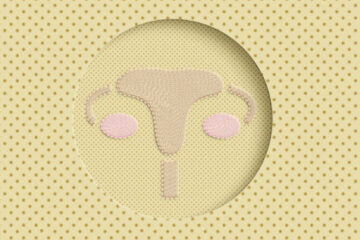You may have been hearing more and more about the Ketogenic Diet over the last few years, whether it is something you have seen mentioned in newspapers, magazines or on social media. It may also be a diet you’re only just hearing about for the first time today – regardless, this post will give you a summary of all things ketogenic diet.
Initially, the diet was established in the 1920’s to assist in the therapeutic intervention of patients with refractory epilepsy because there were few anticonvulsants at the time – an anti-epileptic drug. However, over the last two decades there has been a surge in adults using ketogenic diets for a host of reasons, including using the diet for clinical conditions; neurological, metabolic, endocrinological, oncologic and as a weight loss mechanism.
The Ketogenic Diet typically follows a very high fat, low carbohydrate, and often restricted protein diet, with the dietary macronutrients broken down approximately 85-90% fat, 2-5% carbohydrates and 8-12% protein. This regimen ultimately mimics the metabolism of the fasting state to induce the production of ketone bodies.
Are There Different Types of Ketogenic Diet?
As well as the traditional Ketogenic Diet, there are a host of other Ketogenic Diet types.
- The Modified Atkins Diet
- The Medium-Chain Triglyceride
- The Low Glycaemic Index Treatment, and
- The Very-Low-Calorie Ketogenic Diet
These are examples of the more commonly known ones, which are different due to the ratio of their carbohydrate, fat, and protein breakdown.
When is it Appropriate to Use a Ketogenic Diet?
So, you may be wondering whether the Ketogenic Diet is something you should try? Currently, there is plenty of research available questioning the efficacy of different Ketogenic Diets. Although many studies indicate some positive outcomes of using Ketogenic Diets, the consensus is the need for more longer-term studies.
The one scenario where the Ketogenic Diet has been indicated as safe for clinical use is in patients with refractory epilepsy. However, patients on this diet must have individually designed diets, with adults and children struggling with the restrictiveness and palatability of the diet.
There are other uses of the Ketogenic Diet, however, it’s important to note that these are often hypothesised, with research usually indicating the need for more evidence. Examples can be seen with Type II Diabetes (T2DM), which is beneficial in reducing the carbohydrate within this diet as it can positively affect glucose concentrations and HbA1c (an indicator of average blood sugar). However, the diet can also increase the risk of hypoglycaemia (low blood sugar) in patients receiving insulin. Thus, discussions are encouraged to be had with your diabetes clinical team before attempting the diet, as medication dosages may need to be modified.
Other potential uses of the Ketogenic Diet can be seen in certain neurodegenerative diseases, such as Alzheimer’s, Parkinson’s, and Amyotrophic Lateral Sclerosis, including certain cancer cases. Some studies have seen encouraging effects, and others have only been tested in-vitro (not on humans), highlighting the need for more overall research to determine the benefits.
Is the Keto Diet Appropriate for Weight Loss?
The Ketogenic Diet has been shown to be effective in weight loss. Many studies highlight the positive effect in decreasing body mass index (BMI), blood cholesterol, blood pressure, plasma glucose and more. However, the core mechanism as to why it is an effective method is not entirely understood. Some hypotheses suggest links between the Ketogenic Diet and weight loss; 1) a reduction in appetite due to higher satiety effect of proteins, which affect appetite control hormones and acts as a possible appetite suppressant through the action of ketone bodies. 2) a reduction in lipogenesis (creating fat) and increased lipolysis (breaking down fat) 3) greater metabolic efficiency in consuming fats, highlighted by the reduction in the resting respiratory quotient (a measure of what fuel is being used for energy), or 4) an increase in metabolic costs of gluconeogenesis (creating glucose) and the thermic effect of proteins.
Therefore, it can be suggested that the Ketogenic Diet could help control hunger and improve fat oxidation , which leads to an overall reduction in body weight. However, it would be beneficial to use the diet for a minimum of 2-3 weeks – to induce physiological ketosis and only use it for a maximum of 6-12 months, as there appears to be little statistical significance after 12 months. It would be essential to speak to your GP or a dietitian before attempting this diet to ensure it is safe and appropriate for you.
Keep in mind that due to the very low level of carbohydrate in this diet, some people may find following a ketogenic plan for the long term is unsustainable. Especially for social events, holidays, special occasions etc, it can be hard to manage this diet in these situations, so this is something to consider.
The Positives and Negatives of the Keto Diet
The positive effects of the Ketogenic Diet are linked to certain epilepsy conditions, where individuals don’t respond well to the seizure medicines, with the diet helping reduce or prevent their seizures. It can also be seen as an effective mechanism for weight loss, especially in obese individuals.
The negatives of the Ketogenic Diet are the lack of long-term research within other clinical conditions, which many studies stress the need for. Factors that link the Ketogenic Diet to being a successful therapeutic intervention may be linked. However, until further research happens, it is recommended that discussions are had with a healthcare professional before attempting the diet.
Because of the restrictiveness of this diet and lack of long-term research, the sustainability of the ketogenic diet is not well known overall.
If the diet is used, it is worth noting that several side effects can occur from the use, including but not limited to fatigue, headaches, nausea, vomiting, dizziness, constipation, and low exercise tolerance. There can be longer-term side effects, such as hepatic steatosis, kidney stones and vitamin and mineral deficiency – which is why use of the diet must be closely monitored.
Can the use of the Ketogenic Diet Lead to Unwanted Behaviour?
The Ketogenic Diet is very restrictive, which could be harmful to those more at risk of developing an eating disorder. This is due to the diet imitating similar restrictive behaviours that can occur during eating disorders or disordered eating. These include removing carbohydrates from the diet, or by creating strict rules about what can and cannot be consumed, which could negatively affect your feelings towards food. Furthermore, it may cause individuals using the diet as a weight-loss method to fixate on weight loss and lead to a distorted view of their body and weight. If weight loss is not achieved, or the diet is too restrictive to stick to, it can cause feelings of failure.
Individuals that have struggled with eating disorders or disordered eating in the past may have feelings of guilt or shame surrounding this, and this may cause or trigger certain behaviours to compensate for not sticking to the diet, or not reaching a weight loss goal and lead to purging, over-exercising, or more restrictive eating.
As always, it is strongly advised to reach out to a registered health professional such as a dietitian before embarking on a drastic lifestyle change such as a ketogenic diet.
By Jessica Thomerson, Dietetic student, revised by Reema Patel, Dietitian
References
Batch, J.T., Lamsal, S.P., Adkins, M., Sultan, S., and Ramirez, M.N. (2020) ‘Advantages and Disadvantages of the Ketogenic Diet: A Review Article’. Cureus [online] 12 (8). available from <https://www.ncbi.nlm.nih.gov/pmc/articles/PMC7480775/>
Can the Keto Diet Cause an Eating Disorder? (2019) available from <https://seedsofhope.pyramidhealthcarepa.com/keto-diet-and-eating-disorders/#:~:text=The%20keto%20diet%20teaches%20you%20to%20ignore%20this%20craving.>
Kossoff, E. (2017) Ketogenic Diet [online] available from <https://www.epilepsy.com/treatment/dietary-therapies/ketogenic-diet#Does-it-work?>
Paoli, A. (2014) ‘Ketogenic Diet for Obesity: Friend or Foe?’ International Journal of Environmental Research and Public Health[online] 11 (2), 2092–2107. available from <https://www.ncbi.nlm.nih.gov/pmc/articles/PMC3945587/pdf/ijerph-11-02092.pdf>
Zhu, H., Bi, D., Zhang, Y., Kong, C., Du, J., Wu, X., Wei, Q., and Qin, H. (2022) ‘Ketogenic Diet for Human Diseases: The Underlying Mechanisms and Potential for Clinical Implementations’. Signal Transduction and Targeted Therapy 7 (1)







